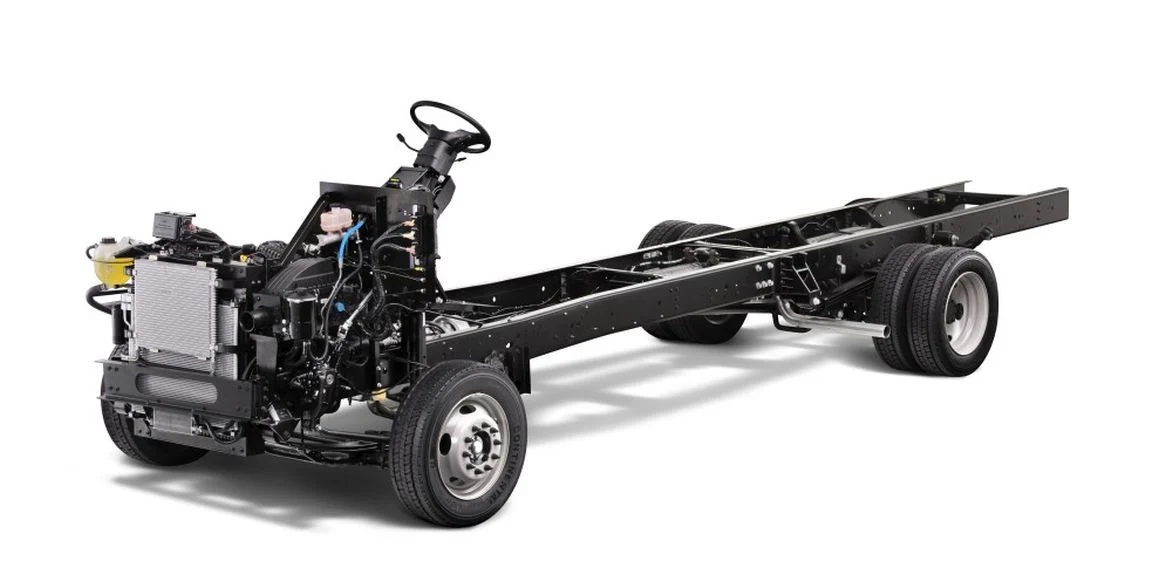News
Chassis Trucks A Versatile Solution for Various Industries
Introduction
Chassis trucks, also known as cab-and-chassis trucks, are a type of commercial vehicle that consists of a basic frame and cab, ready to be customized for various business needs. Their versatile design allows them to serve in multiple industries, from construction and logistics to emergency services. In this article, we will explore the definition, advantages, common applications, and key considerations when purchasing or using chassis trucks.
What is a Chassis Truck?
A chassis truck is essentially a commercial vehicle that comes with a cab and a bare frame, leaving room for the attachment of different body types. The frame can be customized to fit different functions, such as flatbeds, box trucks, dump trucks, or refrigerated bodies. This modular design makes chassis trucks highly adaptable for various industry-specific uses.
Chassis trucks are typically available in different configurations like single or dual rear wheels, varying wheelbase lengths, and axle ratings to handle different weight capacities. Manufacturers such as Ford, Mercedes-Benz, Isuzu, and Freightliner offer chassis trucks that cater to diverse markets.
Advantages of Chassis Trucks
1. Customization
The primary appeal of chassis trucks is their modular nature. Businesses can attach bodies that suit their needs—whether it’s a cargo box for deliveries or a tow bed for roadside assistance.
2. Wide Range of Applications
Since the body is installed separately, these trucks can be repurposed for multiple industries, including logistics, public services, and construction.
3. Durability and Longevity
Chassis trucks are built for commercial use, with robust frames that can withstand heavy loads and harsh environments. Many come with reinforced steel frames designed to last for years, even under tough operating conditions.
4. Cost Efficiency
Purchasing a chassis truck provides flexibility, allowing companies to spread the cost of body customization over time. This is particularly advantageous for businesses that may need to modify their trucks later.
5. Easier Maintenance and Repairs
Since the body is installed separately from the cab, repairs and replacements are often easier. Fleet operators can replace or upgrade the body without altering the main truck structure.
Common Applications of Chassis Trucks
1. Logistics and Delivery
Chassis trucks are widely used by logistics companies, courier services, and retailers to transport goods. They are often fitted with box or flatbed bodies, making them ideal for handling bulky loads or equipment. Refrigerated bodies are commonly installed for perishable goods delivery.
2. Construction and Heavy Equipment Transport
Construction companies frequently use chassis trucks as dump trucks or concrete mixers. Their strong frames allow them to carry heavy construction materials, machinery, and debris efficiently.
3. Emergency and Public Services
Firefighting and rescue services often rely on customized chassis trucks with specialized equipment bodies. Ambulances, police vehicles, and tow trucks are also based on chassis truck designs, providing reliable service under demanding conditions.
4. Food Trucks and Mobile Services
Chassis trucks serve as the foundation for many food trucks, mobile medical units, and other pop-up service vehicles. Their customizable nature makes them an excellent choice for businesses looking to provide mobile services.
5. Towing and Recovery Vehicles
Towing companies rely on chassis trucks fitted with tow beds or hydraulic systems for vehicle recovery. These trucks are ideal for hauling broken-down vehicles or transporting heavy machinery over short distances.
Key Considerations When Buying a Chassis Truck
1. Weight Capacity
Choosing a chassis truck with the right weight capacity is essential to avoid overloading. Trucks are categorized by their Gross Vehicle Weight Rating (GVWR), which indicates the maximum weight the truck can handle, including its body, cargo, and passengers.
2. Wheelbase Length
The wheelbase affects the truck’s stability and maneuverability. A longer wheelbase is better for large cargo loads, while a shorter wheelbase offers more agility for urban driving.
3. Fuel Efficiency
Fuel economy plays a crucial role, especially for businesses that operate large fleets. Some manufacturers offer hybrid or electric chassis truck models, which can reduce fuel costs and carbon emissions.
4. Body Compatibility
Before purchasing a chassis truck, it is essential to ensure that the desired body attachment is compatible with the truck’s frame. Certain specialized bodies may require specific modifications or reinforcements.
5. Manufacturer Support and Warranty
Reliable after-sales service, warranties, and access to replacement parts are crucial when investing in a commercial vehicle. Some manufacturers provide extended warranties or maintenance packages, which can lower the total cost of ownership.
Emerging Trends in the Chassis Truck Market
1. Electric and Hybrid Models
As industries shift towards sustainability, manufacturers are introducing electric and hybrid chassis trucks. These trucks help reduce emissions and align with environmental regulations, particularly in urban areas.
2. Advanced Safety Features
Modern chassis trucks now come with safety technologies such as collision avoidance systems, adaptive cruise control, and blind-spot monitoring to reduce the risk of accidents.
3. Telematics and Fleet Management Systems
Many fleet operators are using telematics to track vehicle performance, monitor driver behavior, and optimize routes. These systems improve operational efficiency and reduce downtime.
4. Increased Demand for Modular Vehicles
With growing demand for multi-purpose vehicles, more businesses are opting for chassis trucks. Their ability to serve various needs without requiring multiple specialized vehicles offers significant cost advantages.
Conclusion
Chassis trucks are a vital component of many industries due to their adaptability, durability, and cost-effectiveness. From logistics and construction to emergency services and mobile businesses, these trucks provide flexible solutions for a wide range of operations. With advancements in technology and the rise of electric models, chassis trucks are set to remain a preferred choice for commercial and industrial applications. When purchasing a chassis truck, companies should consider factors like weight capacity, fuel efficiency, and body compatibility to ensure they make the right investment for their business needs.
By offering unparalleled versatility, chassis trucks continue to play a crucial role in driving industries forward, helping businesses operate more efficiently and meet their customers’ evolving demands.









